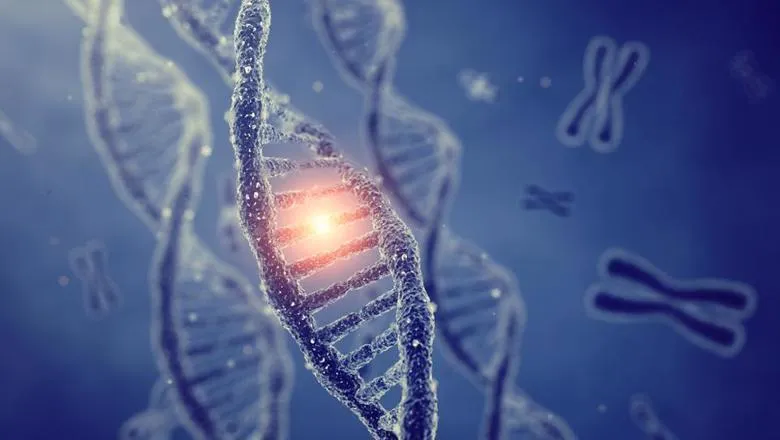15 December 2020
Genes could be key to new Covid-19 treatments
Potential treatments for COVID-19 have been identified after the discovery of five genes associated with the most severe form of the disease. The study has highlighted which existing types of drugs should be prioritised for Covid-19 treatment trials.

The study led by the GenOMICC consortium – a global collaboration to study genetics in critical illness – with King’s Professor Manu Shankar-Hari as a co-investigator.
Genes involved in two molecular processes - antiviral immunity and lung inflammation - were pinpointed in the findings published in Nature.
Professor Manu Shankar-Hari, a Guy’s and St Thomas’ NHS Foundation Trust consultant in intensive care medicine and a NIHR clinician scientist explained: “This is an influential paper, as our findings provide vital clues not only to our understanding COVID-19 illness, but also highlights targets for repurposing of already licensed medications.
“They also allow us to focus our research efforts on drugs we know target specific immune system responses to COVID-19, specifically antiviral and anti-inflammatory pathways.”
The discovery was a result of the research team studying the DNA of 2,700 patients in 208 intensive care units (ICUs) in the UK. They compared the genetic information of COVID-19 patients in ICU with samples provided by healthy volunteers from other studies.
The team found key differences in five genes of the ICU patients compared with samples provided by healthy volunteers. The genes partially explain why some people become desperately sick with COVID-19, while others are not affected.
Dr Kenneth Baillie, the project’s chief investigator and Academic Consultant in Critical Care Medicine and Senior Research Fellow at University of Edinburgh’s Roslin Institute, said: “This is a stunning realisation of the promise of human genetics to help understand critical illness. Just like in sepsis and influenza, in Covid-19, damage to the lungs is caused by our own immune system, rather than the virus itself. Our genetic results provide a roadmap through the complexity of immune signals, showing the route to key drug targets.
“Our results immediately highlight which drugs should be at the top of the list for clinical testing. We can only test a few drugs at a time, so making the right choices will save thousands of lives.
“This work is only possible because of the generous contribution of the patients themselves and their families, research teams in NHS hospitals across the country, and the generous funding we’ve received from the public and organisations.”
This study is one of a number of COVID-19 studies that have been given urgent public health research status by the Chief Medical Officer and Deputy Chief Medical Officer for England.
GenOMICC (Genetics of Susceptibility and Mortality in Critical Care) is funded by the charity Sepsis Research FEAT, the Intensive Care Society, Wellcome, UK Research and Innovation, Scotland’s Chief Scientist Office and the Department of Health and Social Care via the National Institute for Health Research.
